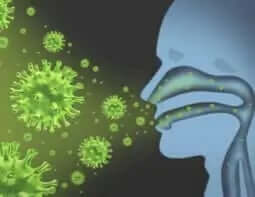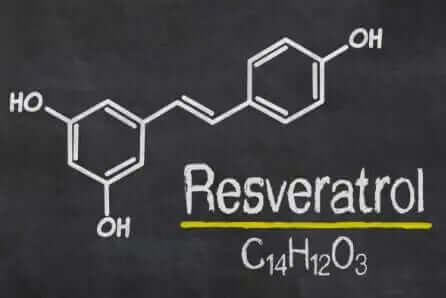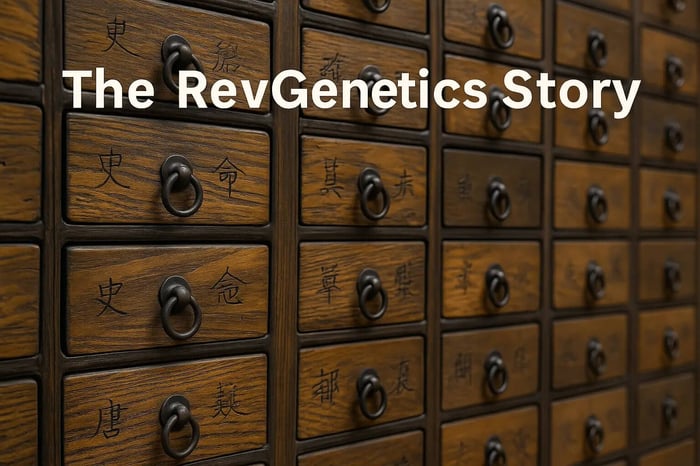Resveratrol: The Natural Compound Revolutionizing Viral Defense and Healthy Aging
Resveratrol stands at the forefront of natural health solutions, offering remarkable potential for those seeking protection against viral infections and age-related health challenges. This powerful polyphenol compound, found naturally in red grapes, berries, and peanuts, has captured the attention of scientists worldwide for its extraordinary ability to support immune function and cellular health.
Understanding Resveratrol and Its Vital Role in Modern Health
As millions of Americans search for effective ways to strengthen their immune systems and promote healthy aging, resveratrol emerges as a beacon of hope. This naturally occurring compound has demonstrated remarkable capabilities in laboratory studies, particularly in its interaction with viruses that affect the majority of the population.
The importance of resveratrol becomes even more evident when we consider that approximately 90-95% of adults in the United States carry the Epstein-Barr virus (EBV) in their bodies. This widespread viral presence makes the discovery of natural compounds that can help manage viral activity particularly valuable for public health.
How Resveratrol Works: The Science Behind Viral Protection
Recent groundbreaking research published in the journal Molecules (2010, vol 15 pp 7115-7124) has illuminated the fascinating mechanisms through which resveratrol exerts its protective effects against viral replication. Scientists have discovered that this remarkable compound works through multiple pathways to support your body's natural defenses.
Key Mechanisms of Resveratrol Action:
- Protein Synthesis Inhibition: Resveratrol effectively blocks the production of proteins that viruses need to replicate within host cells
- Viral Spread Prevention: The compound interferes with proteins required for viruses to spread from infected cells to healthy neighboring cells
- Cellular Defense Enhancement: Resveratrol supports the body's natural immune response mechanisms
- Antioxidant Protection: Provides powerful antioxidant effects that protect cells from oxidative stress
The Epstein-Barr Virus Connection: Why Resveratrol Matters More Than Ever
The relationship between resveratrol and EBV represents a significant breakthrough in natural health science. EBV isn't just another common virus; it's associated with several serious health conditions that affect millions of people worldwide. Understanding how resveratrol can help manage this virus opens new possibilities for preventive health strategies.
Health Conditions Associated with EBV:
| Condition | Connection to EBV | Potential Role of Resveratrol |
|---|---|---|
| Burkitt's Lymphoma | EBV found in tumor cells | May help inhibit viral replication |
| Nasopharyngeal Carcinoma | Strong association with EBV | Supports cellular defense mechanisms |
| Hodgkin's Lymphoma | EBV present in many cases | Potentially reduces viral activity |
| Autoimmune Conditions | Including lupus and multiple sclerosis | May modulate immune response |
Maximizing Resveratrol Benefits: Practical Applications for Daily Life
Incorporating resveratrol into your wellness routine can be both simple and transformative. While this compound occurs naturally in certain foods, many people choose to supplement their intake to ensure they receive therapeutic amounts that research suggests may be beneficial.
Natural Food Sources of Resveratrol:
- Red Grapes and Red Wine: The skin of red grapes contains the highest concentrations
- Blueberries and Cranberries: These antioxidant-rich berries provide modest amounts
- Peanuts and Pistachios: Surprising sources of this beneficial compound
- Dark Chocolate: Contains small amounts along with other beneficial polyphenols
- Japanese Knotweed: One of the richest natural sources, often used in supplements
The Future of Resveratrol Research: Promising Developments
The scientific community continues to uncover new and exciting applications for resveratrol. Current research explores its potential in areas ranging from cardiovascular health to cognitive function, with each study adding to our understanding of this remarkable compound's versatility.
Emerging research suggests that resveratrol may offer benefits beyond viral protection, including support for healthy aging processes, metabolic function, and cellular longevity. These findings inspire hope for those seeking natural approaches to maintaining vibrant health throughout their lives.
Understanding Bioavailability: Getting the Most from Resveratrol
One crucial aspect of resveratrol supplementation involves understanding bioavailability—how well your body can absorb and utilize this compound. Research indicates that certain formulations and delivery methods can significantly enhance absorption, making the selection of high-quality sources particularly important.
Advanced delivery systems, including micronized formulations and combinations with other synergistic compounds, have shown promise in improving the bioavailability of resveratrol. This means that smaller doses can potentially deliver greater benefits when properly formulated.
Safety Profile and Considerations
The safety profile of resveratrol adds to its appeal as a natural health solution. Extensive research has demonstrated that resveratrol is generally well-tolerated, even at doses significantly higher than those found in dietary sources. This excellent safety record, combined with its potential benefits, makes it an attractive option for those seeking natural immune support.
Integrating Resveratrol into a Comprehensive Health Strategy
While resveratrol offers remarkable benefits on its own, its effects can be enhanced when combined with other healthy lifestyle practices. Creating a comprehensive approach to health that includes this powerful compound can amplify your results and support overall wellbeing.
Complementary Health Practices:
- Regular Exercise: Enhances circulation and supports immune function
- Balanced Nutrition: Provides essential nutrients that work synergistically with resveratrol
- Stress Management: Reduces immune system burden and supports overall health
- Quality Sleep: Essential for immune function and cellular repair
- Hydration: Supports optimal absorption and cellular function
Success Stories and Real-World Applications
Countless individuals have discovered the transformative potential of resveratrol in their personal health journeys. From enhanced energy levels to improved immune resilience, the positive experiences shared by those who have incorporated this compound into their routines continue to inspire others to explore its benefits.
Healthcare practitioners increasingly recognize resveratrol as a valuable tool in supporting patient health, particularly for those concerned about viral infections and age-related health challenges. This growing professional acceptance reflects the mounting scientific evidence supporting its use.
Looking Ahead: The Promise of Resveratrol
As we continue to face health challenges in our modern world, natural compounds like resveratrol offer hope and practical solutions. The ability of this remarkable substance to support our bodies' natural defense mechanisms while promoting overall health makes it an invaluable addition to any wellness strategy.
The future holds even more promise as researchers continue to unlock the full potential of resveratrol. With each new study, we gain deeper insights into how this compound can support human health and wellbeing, opening doors to new possibilities for natural health optimization.
Frequently Asked Questions About Resveratrol
What exactly is resveratrol and where does it come from?
Resveratrol is a natural polyphenol compound produced by certain plants as a defense mechanism against stress, injury, and infection. It's most famously found in the skin of red grapes, which is why red wine contains this beneficial compound. Other rich sources include blueberries, cranberries, peanuts, and Japanese knotweed. This powerful antioxidant has gained significant attention for its potential to support immune function, promote healthy aging, and protect against various health challenges.
How does resveratrol help protect against viral infections?
Scientific research has revealed that resveratrol works through multiple mechanisms to inhibit viral activity. It blocks the synthesis of proteins that viruses need to replicate within host cells and prevents the production of proteins required for viruses to spread to neighboring healthy cells. This dual action makes resveratrol particularly effective against latent viruses like EBV, which affects the vast majority of the adult population. By interfering with these critical viral processes, resveratrol helps support your body's natural defense systems.
What is the recommended dosage of resveratrol for health benefits?
While optimal dosages can vary based on individual needs and health goals, research studies have used doses ranging from 150mg to 1000mg daily. Many health practitioners recommend starting with a moderate dose of 250-500mg per day and adjusting based on individual response. It's important to choose high-quality supplements with good bioavailability, as this affects how much resveratrol your body can actually use. Always consult with a healthcare provider to determine the right dosage for your specific situation.
Can I get enough resveratrol from food alone?
While foods like red grapes, berries, and peanuts contain resveratrol, the amounts are relatively small compared to therapeutic doses used in research studies. For example, you would need to consume enormous quantities of red wine or grapes daily to match the resveratrol levels shown to be beneficial in studies. This is why many people choose to supplement with concentrated forms of resveratrol to ensure they receive amounts that can make a meaningful difference in their health. However, incorporating resveratrol-rich foods into your diet still provides valuable nutritional benefits.
Are there any side effects or interactions with resveratrol?
Resveratrol has an excellent safety profile and is generally well-tolerated by most people. Some individuals may experience mild digestive upset when first starting supplementation, which often resolves as the body adjusts. Resveratrol may interact with blood-thinning medications and could theoretically affect hormone-sensitive conditions due to its mild estrogenic activity. As with any supplement, it's wise to consult with a healthcare provider, especially if you're taking medications or have existing health conditions.
How long does it take to see benefits from resveratrol supplementation?
The timeline for experiencing benefits from resveratrol can vary depending on individual factors and health goals. Some people report feeling increased energy and vitality within a few weeks, while other benefits, particularly those related to long-term health protection and cellular aging, may develop gradually over months. Consistent daily supplementation is key to achieving and maintaining benefits. Many research studies showing positive effects have evaluated outcomes after 8-12 weeks of regular use.
Can resveratrol be taken with other supplements?
Resveratrol works well with many other supplements and may even have synergistic effects with certain nutrients. It pairs particularly well with other antioxidants like vitamin C, vitamin E, and quercetin. Some formulations combine resveratrol with piperine (from black pepper) or other compounds to enhance absorption. However, spacing resveratrol away from iron supplements is recommended, as it may interfere with iron absorption. Creating a comprehensive supplement routine that includes resveratrol can amplify your overall health benefits.
What makes resveratrol different from other antioxidants?
While many compounds have antioxidant properties, resveratrol stands out for its unique ability to activate specific cellular pathways associated with longevity and health. It's particularly notable for activating sirtuins, proteins that play crucial roles in cellular health and aging. Additionally, resveratrol's specific action against viral replication sets it apart from other antioxidants. Its ability to cross the blood-brain barrier and its potential effects on multiple body systems make it a particularly versatile and valuable compound for overall health support.
Is resveratrol suitable for long-term use?
Research indicates that resveratrol is safe for long-term supplementation, with many studies extending over months or even years without significant adverse effects. In fact, the benefits of resveratrol often become more pronounced with sustained use, as the compound supports ongoing cellular health and protection. Many people incorporate resveratrol into their daily routine as a foundational supplement for healthy aging and immune support. The key is choosing high-quality products and maintaining consistent use to maximize benefits over time.
How can I ensure I'm getting high-quality resveratrol?
Selecting high-quality resveratrol requires attention to several factors. Look for products that specify the source of resveratrol (such as Japanese knotweed or grape extract) and the concentration of trans-resveratrol, the most bioactive form. Third-party testing for purity and potency provides additional assurance. Advanced formulations that address bioavailability through special delivery systems or complementary ingredients often provide superior results. Reputable manufacturers will provide detailed information about their sourcing, testing, and formulation methods.







